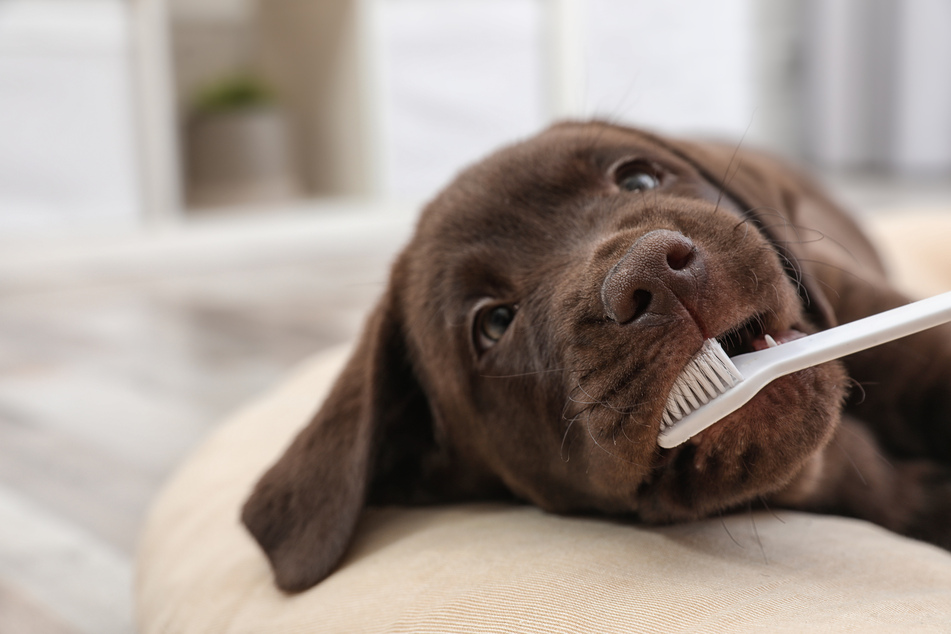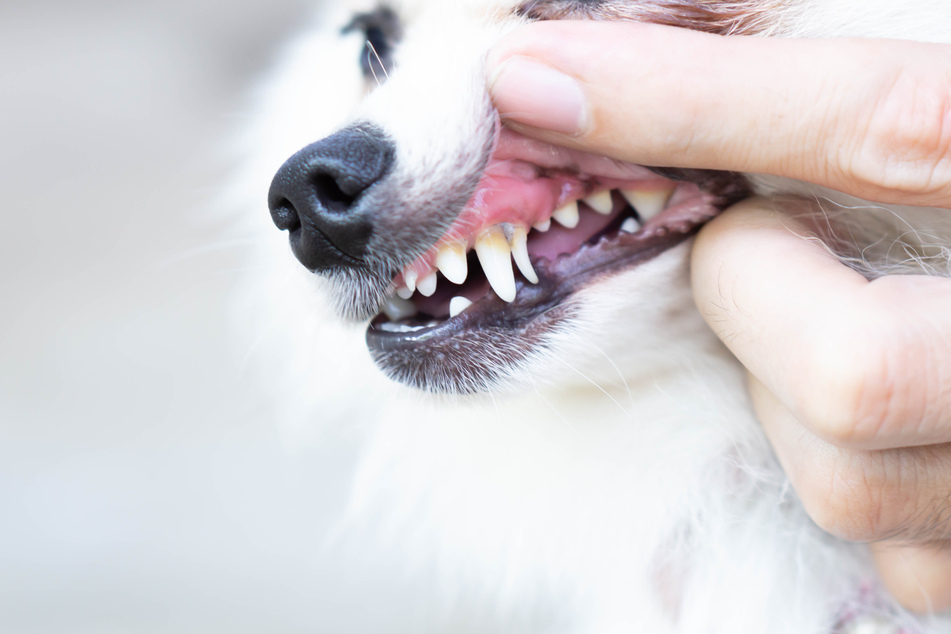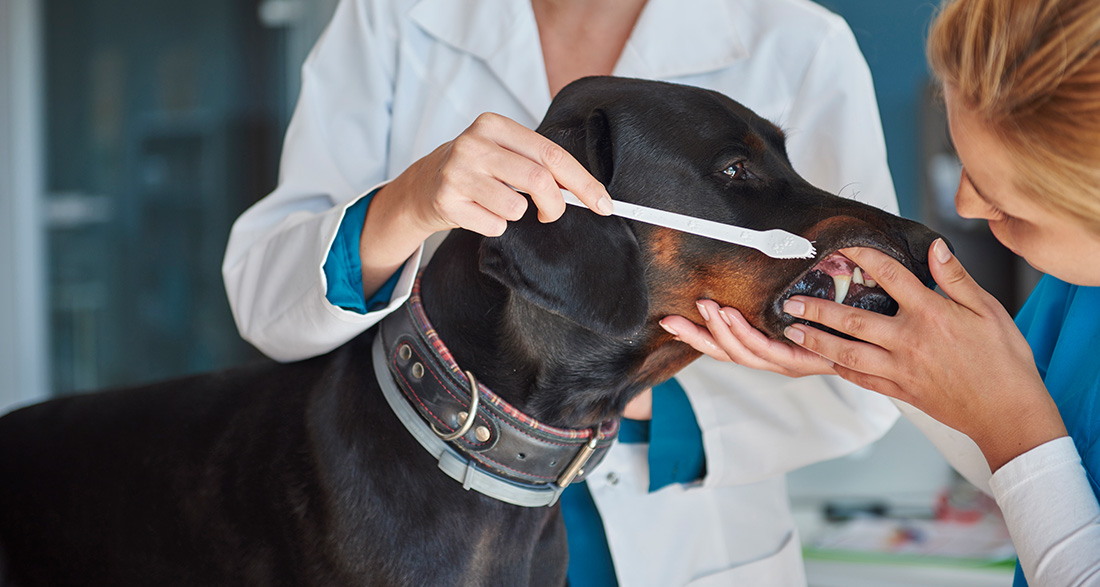Dogs find it challenging to express dental pain, and dental issues often go unnoticed by their owners for a long time. Therefore, it’s crucial to pay attention to symptoms and, most importantly, prevent dental problems with the right dental care for dogs.
Adult dogs have 42 teeth that grow after the puppy’s tooth change. Some dog breeds have particularly short or stunted teeth. Missing or small molars do not affect health unless they become inflamed. However, dental misalignment can burden the dog and should be evaluated by a veterinarian.
Dogs, especially those with short snouts, are often affected by dental misalignment. Since their jaws are often too small for the number of teeth, it can lead to periodontitis. Gum inflammation can even affect the jawbone.
Healthy teeth and gums are vital for dogs as they use them not only for eating but also as communication and hunting tools. If teeth are not adequately cared for, severe dental pain can occur, leading to refusal of food and, consequently, nutritional deficiencies.
iHugDogs provides information on what good dental care for dogs looks like and how to prevent dental diseases.
How do I take care of my dog’s teeth?
Dental care should always be taken seriously as proper care prevents severe health problems.
You can easily implement the following tips:
- Proper Nutrition: Dogs need to chew, which exercises their teeth and stimulates saliva flow, which is cleansing and antibacterial. Fresh meat or a bone to chew on fulfills this task. Additionally, a sugar-free diet is the healthiest.
- Brushing Teeth: You can brush your dog’s teeth, but they must have been accustomed to it as puppies. Get special dog toothbrushes and toothpaste with flavors that dogs find pleasant.
- Dental Toys: With the right toys, you can achieve two goals. The dog is entertained and has fun while also cleaning its teeth.
- Chew Toys: A dental cleaning ball or bone is perfect for playing and keeping the teeth in good shape.
Tip: Chew bones should not come from chicken or pork and must be uncooked.
By the way
Sufficient exercise is good for teeth! Stimulated saliva flow has a teeth-cleaning effect.

What is the best solution for removing tartar in dogs?
Firstly, you cannot remove tartar yourself, and home remedies unfortunately do not help. If your dog has inflammation in the mouth area, then a visit to the vet is necessary. The procedure is simple and uncomplicated. Your dog will be lightly anesthetized, and the tartar will be removed from the teeth using ultrasound.
Important: Do not attempt to remove tartar yourself, as it can injure the mouth and damage the important tooth enamel.
How do I recognize dental pain in dogs?

Your dog may suffer from toothache unnoticed at first. Generally, animals do not show dental pain as clearly as, for example, pain in their paws. Therefore, many dogs silently endure pain for several years. With a little attention, however, you can quickly determine if your pet is experiencing dental pain.
The following symptoms indicate dental problems:
- Slow and cautious eating
- Refusal to eat
- Bad breath
- Gum bleeding
- Brown discoloration on the teeth
- Pus on the teeth
- Ear inflammation
- Whining while chewing
- Chewing on one side only
Simply check your dog’s mouth to see how the teeth look. There are various causes of dental problems, many of which can be avoided if known.
Possible causes of gum inflammation include:
- Too soft or mushy food
- Eating the feces of other animals
- Foreign objects, such as small stones or sticks
- Too tight a bite
- Chemical burns
Tip
Ensure your dog has something substantial to chew on, such as a bone or hard dog food. This helps train its bite.
Conclusion: Proper dental care for dogs prevents pain and diseases
The most important factors are proper nutrition, chewing, and sufficient exercise. Regularly check your dog’s mouth to ensure its teeth are strong and white. Do not attempt to remove tartar yourself; your veterinarian can assist you and address any further questions.
Careful dental care prevents silent suffering and long-term inflammation in dogs.


